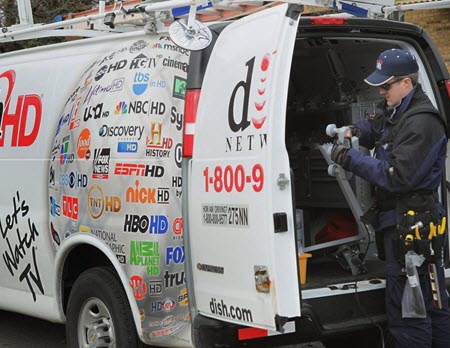Analyst Raises Dish to 'Buy' After Sprint, T-Mobile End Talks
The smarter way to stay on top of the multichannel video marketplace. Sign up below.
You are now subscribed
Your newsletter sign-up was successful

Pivotal Research Group CEO and senior media & communications analyst Jeff Wlodarczak raised his rating on Dish Network to "buy" Monday, adding that the satellite TV company could be more attractive in the wake of the failed Sprint-T-Mobile merger.
Sprint and T-Mobile officially called it quits Saturday, saying after months of talks about a possible merger that no deal could be reached. Sprint on Sunday announced an MVNO Agreement with Altice USA, unrelated to the merger action.
In a note to clients Monday, Wlodarczak wrote that Sprint's loss could be Dish's gain, either through a spectrum sale to another carrier like T-Mobile or Verizon, or an outright sale of the company. Dish has wireless spectrum licenses that are valued at about $10 billion, and minus a Sprint/T-Mobile merger those assets could be rising in value.
Dish stock already was on the rise in early trading Monday, up 6.7% ($3.23 per share) to $51.30 each.
"In our opinion, post the T-Mobile-Sprint deal failure there is a reasonable chance that T-Mobile could make a play for Dish or Dish spectrum as it would immediately vault the most disruptive U.S. wireless player into the leading U.S. spectrum position (w/ substantially more spectrum than underpins Verizon’s “best in class” network)," Wlodarczak wrote. "This possible move could force Verizon to counter-bid for Dish spectrum (or possibly the entire company) as Dish spectrum is ideally suited for Verizon and to keep it out of T-Mobile’s hands."
The analyst pointed to Verizon's bidding war with AT&T over Straight Path earlier this year, which Verizon ultimately won.
"In our view, we don’t see what T-Mobile management has to lose in engaging in talks with Dish about a possible deal (either they get high quality spectrum or force Verizon to overpay)," Wlodarczak wrote. " In addition, AT&T, post their Time Warner deal, could (and frankly should) be interested in purchasing Dish’s core DBS business taking advantage of a potentially more laissez faire regulatory climate/emergence of V-MVPD’s, to significantly bolster their DirecTV business (and help to justify the original questionable DirecTV deal) by creating a SatTV monopoly in ~10-15M US households, increased programming scale and massive synergies at a likely very attractive price."
The smarter way to stay on top of the multichannel video marketplace. Sign up below.
